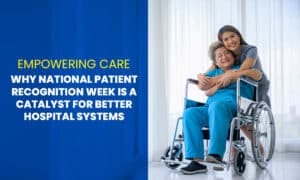
In anaesthesiology, patient safety and clear documentation are crucial. Managing patient information efficiently is key to success. Anaesthesiology departments face challenges like pre-surgery assessments and monitoring during surgery. This is where a specialized EHR for Anaesthesiology system becomes important. By making documentation easier and helping track patients during surgery, an Anaesthesiology EHR ensures better care and smoother workflows for healthcare teams.
Key Features of Anaesthesiology EHR
- Connection with Anaesthesia Monitoring Systems
A key feature of Anaesthesiology EHR systems is the connection to anaesthesia machines and monitors. Information about vital signs and anaesthesia levels is automatically updated in the EHR. This allows anaesthesiologists to focus on patient care instead of spending time entering data.
- Safety Alerts and Patient Monitoring
These EHR systems include patient monitoring features that alert doctors if something goes wrong, such as abnormal vital signs. These alerts help doctors react quickly during critical moments, making sure patients stay safe during anaesthesia.
- Pre-Op and Post-Op Care Management
EHRs for Anaesthesiology help manage patient care before and after surgery. Pre-surgery assessments, like patient history and risk factors, are easily documented. Post-surgery care plans and follow-up notes can also be tracked smoothly.
- Automated Documentation
By automating the documentation process, EHR for Anaesthesiology reduce the time spent on manual data entry. From recording anaesthesia doses to monitoring patient vitals, the system automatically captures important data, ensuring everything stays up-to-date and accurate.
- Meeting Regulatory Standards
These EHRs are designed to meet strict healthcare rules. They help ensure all documentation, billing, and reporting are done correctly. This protects both the healthcare team and the patient.
- Communication Between Departments
Good communication between departments like surgery, ICU, and anaesthesiology is important. EHR for Anaesthesiology helps by providing a central place for patient records, ensuring everyone involved in patient care has the same information.

Benefits of Using Anaesthesiology EHR
- Better Patient Care and Safety
The real-time monitoring and automatic alerts in EHR for Anaesthesiology s reduce risks during surgery. Accurate documentation and easy access to patient history help anaesthesiologists make informed decisions quickly.
- More Efficient Workflow
EHR for Anaesthesiology systems reduces the need for paperwork and manual record-keeping, allowing doctors and nurses to focus on patient care. By automating tasks like data entry and monitoring, the system improves the department’s workflow.
- Ensuring Compliance
With built-in checks for accuracy, these EHRs help meet healthcare regulations by ensuring proper billing, documentation, and reporting. This helps avoid legal issues and ensures patient safety.
- Using Data for Better Results
EHR for Anaesthesiology offers tools to analyse data, helping doctors track patient outcomes and spot trends. This allows healthcare providers to improve treatment plans and provide better patient care.
Future of EHR in Anaesthesiology
- AI and Machine Learning
The future of EHR for Anaesthesiology s includes AI and machine learning. These technologies will help predict problems before they happen, allowing doctors to take action earlier to keep patients safe.
- Better Integration with New Tools
As new anaesthesia and monitoring tools are developed, EHR systems will offer even better integration. This will ensure doctors always have the most accurate information during surgery, leading to better care for patients.
- Personalized Care
In the future, EHR systems will support personalized care by analysing patient history and responses to anaesthesia. This will help anaesthesiologists create tailored care plans, ensuring the best care for each patient.
Conclusion
EHR for Anaesthesiology s are essential for improving patient care and making workflows more efficient. With features like real-time monitoring and improved communication between departments, these systems help anaesthesiologists provide safer and better care. As technology continues to evolve, the future of EHRs in Anaesthesiology will bring even more advancements, helping doctors deliver personalized care and improve patient outcomes. For healthcare providers, adopting an Anaesthesiology EHR is a step towards better patient care and efficiency.
Looking for the best EHR for your hospital? Ezovion offers top-tier solutions to enhance patient care and enhance operations. Take the next step toward smarter healthcare with Ezovion’s best-in-class EHR. Get in touch to learn more!





